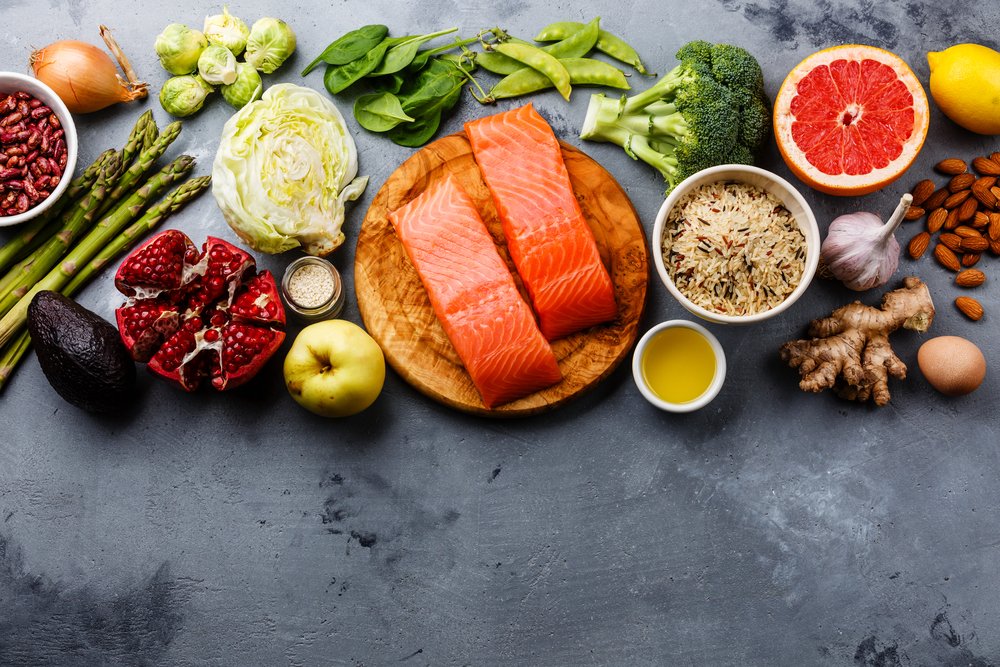Hormones are the body’s silent conductors, orchestrating everything from mood to metabolism. When they’re out of sync, it’s like a symphony gone wrong—fatigue, mood swings, or weight gain can take center stage. A few years ago, I hit a wall with low energy and irritability, only to learn my hormones were out of balance. Through lifestyle tweaks, I found natural ways to restore harmony. This article dives into science-backed tips to balance hormones naturally, helping you feel vibrant and in tune.
What Are Hormones, and Why Do They Matter?
Hormones are chemical messengers produced by glands like the thyroid, adrenals, and ovaries, regulating vital functions like sleep, stress, and reproduction. Imbalances can lead to symptoms like fatigue, acne, or anxiety. Natural strategies can support hormonal health without relying on medications.
Understanding Hormonal Imbalances
Hormonal imbalances occur when hormone levels are too high or too low, often due to stress, diet, or lifestyle. Common issues include cortisol spikes from stress or insulin resistance from poor nutrition. Recognizing these triggers is the first step to restoring balance.
Why Natural Methods Work
Natural approaches focus on lifestyle changes that support the body’s innate ability to regulate hormones. Unlike medications, they address root causes like nutrient deficiencies or poor sleep. Research shows diet and exercise can significantly improve hormonal health.
Optimize Your Diet for Hormonal Health
Food is more than fuel—it’s a key player in hormone balance. A nutrient-rich diet supports glands like the thyroid and adrenals, while poor choices can disrupt them. Let’s explore how to eat for hormonal harmony.
Prioritize Whole, Nutrient-Dense Foods
Whole foods like vegetables, fruits, and lean proteins provide vitamins and minerals essential for hormone production. For example, zinc in pumpkin seeds supports testosterone, while magnesium in spinach aids cortisol regulation. A 2019 study in Nutrients linked whole-food diets to improved hormonal profiles.
Incorporate Healthy Fats
Healthy fats, like those in avocados, nuts, and olive oil, are crucial for hormone synthesis, as hormones are made from cholesterol. Omega-3s in salmon reduce inflammation, which can disrupt hormones. A 2020 study in The Journal of Clinical Endocrinology & Metabolism found omega-3s improved insulin sensitivity.
Balance Blood Sugar with Low-Glycemic Foods
Spikes in blood sugar can wreak havoc on insulin and cortisol. Choose low-glycemic foods like quinoa, berries, and sweet potatoes to stabilize levels. A 2017 study in Diabetes Care showed low-glycemic diets reduced insulin resistance in women with PCOS.
Limit Processed Foods and Sugar
Processed foods and sugary snacks cause inflammation and insulin spikes, throwing hormones off balance. Swap sodas for herbal teas and chips for veggie sticks. Research in The American Journal of Clinical Nutrition (2018) linked high-sugar diets to increased cortisol levels.
Add Hormone-Supporting Superfoods
Certain foods, like flaxseeds and broccoli, contain compounds that support hormone detoxification. Flaxseeds provide lignans that balance estrogen, while broccoli’s sulforaphane aids liver detox. A 2021 study in Frontiers in Nutrition found these foods improved estrogen metabolism.
| Food Category | Examples | Hormonal Benefit |
|---|---|---|
| Healthy Fats | Avocado, Olive Oil, Salmon | Supports hormone synthesis, reduces inflammation |
| Low-Glycemic Carbs | Quinoa, Sweet Potato, Berries | Stabilizes blood sugar, improves insulin sensitivity |
| Superfoods | Flaxseeds, Broccoli, Turmeric | Enhances hormone detoxification, reduces inflammation |
| Protein Sources | Eggs, Lentils, Chicken | Provides amino acids for hormone production |
Exercise to Support Hormone Balance
Movement is a powerful tool for regulating hormones, from boosting endorphins to reducing cortisol. The key is finding the right balance—too much or too little exercise can tip the scales. My own routine of yoga and walking helped me feel energized without burnout.
Engage in Moderate Cardio
Activities like brisk walking or cycling improve insulin sensitivity and reduce stress hormones. Aim for 150 minutes per week, as recommended by the CDC. A 2019 study in Medicine & Science in Sports & Exercise found moderate cardio lowered cortisol in women.
Incorporate Strength Training
Lifting weights or doing bodyweight exercises like squats boosts testosterone and growth hormone. Two to three sessions per week are enough for benefits. A 2020 study in Journal of Strength and Conditioning Research showed strength training improved hormonal profiles in men and women.
Try Yoga or Pilates
Yoga and Pilates reduce cortisol while improving flexibility and mood. Poses like Child’s Pose or Reclined Twist are especially calming. A 2018 study in Frontiers in Immunology found yoga lowered cortisol levels significantly.
Avoid Overtraining
Excessive exercise can spike cortisol and disrupt hormones, especially in women. Listen to your body and include rest days. Research in Sports Medicine (2021) linked overtraining to adrenal fatigue and hormonal imbalances.
Prioritize Sleep for Hormonal Harmony
Sleep is a non-negotiable for hormone health. Poor sleep disrupts melatonin, cortisol, and growth hormone, leaving you wired or tired. I learned this the hard way after late-night work sessions left me feeling off-kilter.
Aim for 7–9 Hours of Quality Sleep
Consistent, restorative sleep regulates hormones like melatonin and cortisol. Stick to a regular sleep schedule, even on weekends. A 2020 study in Sleep Medicine Reviews found 7–9 hours of sleep optimized hormonal balance.
Create a Sleep-Friendly Environment
Keep your bedroom dark, cool, and quiet to promote deep sleep. Use blackout curtains and avoid screens before bed. The Journal of Clinical Sleep Medicine (2019) showed blue light exposure disrupts melatonin production.
Practice a Bedtime Routine
A calming routine, like reading or gentle stretching, signals your body to wind down. Herbal teas like chamomile can help, too. A 2021 study in Journal of Alternative and Complementary Medicine linked bedtime rituals to better sleep and lower cortisol.
Manage Stress to Reduce Cortisol
Chronic stress is a hormone wrecking ball, spiking cortisol and throwing other hormones out of whack. Finding ways to manage stress is like giving your body a reset button. For me, journaling became a game-changer for calming my mind.
Practice Mindfulness or Meditation
Mindfulness practices like meditation or deep breathing lower cortisol and improve emotional resilience. Even 10 minutes daily can make a difference. A 2017 study in Psychoneuroendocrinology found meditation reduced cortisol in stressed adults.
Try Journaling or Gratitude Practices
Writing down thoughts or things you’re grateful for can shift your mindset and reduce stress. I found journaling before bed helped me process the day. A 2019 study in Journal of Positive Psychology linked gratitude practices to lower stress hormones.
Connect with Nature
Spending time outdoors, whether hiking or gardening, lowers cortisol and boosts mood. A 2020 study in Scientific Reports showed 20 minutes in nature significantly reduced stress hormone levels.
Support Your Gut Health
Your gut and hormones are best friends—what affects one impacts the other. A healthy gut supports hormone detoxification and reduces inflammation. After adding fermented foods to my diet, I noticed less bloating and more energy.
Eat Probiotic-Rich Foods
Foods like yogurt, kefir, and sauerkraut promote a healthy gut microbiome, which aids hormone balance. Probiotics help regulate estrogen metabolism. A 2021 study in Gut Microbes linked probiotics to improved hormonal health.
Include Fiber for Detoxification
Fiber from vegetables, fruits, and whole grains supports liver detoxification, which clears excess hormones. Aim for 25–30 grams daily. A 2018 study in Nutrients found high-fiber diets reduced estrogen dominance.
Avoid Gut Disruptors
Alcohol, artificial sweeteners, and processed foods harm gut health, indirectly affecting hormones. Limit these and opt for whole foods. Research in Microbiome (2020) showed processed diets disrupted gut-hormone connections.
| Lifestyle Factor | Action | Hormonal Impact |
|---|---|---|
| Sleep | 7–9 hours, consistent schedule | Regulates melatonin, cortisol (Sleep Med Rev, 2020) |
| Exercise | Moderate cardio, strength training | Boosts endorphins, reduces cortisol (MSSE, 2019) |
| Stress Management | Meditation, journaling | Lowers cortisol, improves resilience (Psychoneuroendocrinology, 2017) |
| Gut Health | Probiotics, fiber | Supports hormone detoxification (Gut Microbes, 2021) |
Pros and Cons of Natural Hormone Balancing
Natural methods are empowering, but they’re not a one-size-fits-all solution. Here’s a balanced look at the benefits and challenges.
Pros
- Sustainable: Lifestyle changes are long-term and holistic.
- Low Risk: Minimal side effects compared to medications.
- Accessible: Most tips require no expensive tools or prescriptions.
- Holistic: Benefits extend beyond hormones to overall health.
- Empowering: Puts you in control of your well-being.
Cons
- Time-Intensive: Results require consistency and patience.
- Individual Variation: What works for one person may not work for another.
- Not a Cure-All: Severe imbalances may need medical intervention.
- Learning Curve: Requires effort to adopt new habits.
How to Start Balancing Hormones Naturally
Ready to take charge of your hormonal health? These practical steps make it easy to begin, whether you’re a newbie or seasoned wellness enthusiast. My journey started with small changes, like swapping coffee for green tea, and snowballed from there.
Best Tools for Hormone Health
Invest in tools that support your journey, like a high-quality blender for nutrient-packed smoothies or a journal for tracking stress. Apps like MyFitnessPal can help monitor diet and exercise.
| Tool | Recommendation | Why It’s Great |
|---|---|---|
| Blender | Vitamix | Perfect for smoothies with hormone-supporting ingredients |
| Journal | Moleskine Wellness Journal | Tracks stress, sleep, and diet habits |
| App | MyFitnessPal | Monitors nutrition and exercise for balance |
| Water Bottle | Hydro Flask | Encourages hydration, key for hormone function |
Where to Find Support
- Nutritionists: Work with a professional to tailor your diet.
- Online Communities: Join forums like Reddit’s r/Hormones for tips.
- Apps and Courses: Platforms like Headspace offer stress-relief guidance.
Tips for Beginners
- Start small—try one or two changes, like adding a morning walk.
- Track symptoms to identify what works for you.
- Stay hydrated, as water supports hormone function.
- Be patient; results can take weeks to months.
People Also Ask (PAA)
Can diet alone balance hormones?
Diet plays a major role by providing nutrients for hormone production and reducing inflammation. However, combining diet with sleep, exercise, and stress management is most effective. A 2019 study in Nutrients showed whole-food diets improved hormonal health.
What supplements help with hormone balance?
Supplements like magnesium, vitamin D, and omega-3s can support hormones, but consult a doctor first. Natural sources like foods are often safer. A 2020 study in The Lancet found vitamin D improved hormonal profiles in deficient individuals.
How does stress affect hormones?
Chronic stress raises cortisol, which disrupts insulin, thyroid, and sex hormones. Practices like meditation or yoga can counteract this. A 2017 study in Psychoneuroendocrinology linked stress reduction to better hormone balance.
Is exercise good for hormonal imbalances?
Yes, moderate exercise like yoga or strength training regulates cortisol and insulin. Overtraining, however, can worsen imbalances. A 2019 study in MSSE showed balanced exercise improved hormonal health.
FAQ Section
How long does it take to balance hormones naturally?
Results vary, but noticeable changes often occur within 4–12 weeks of consistent lifestyle changes. Diet, sleep, and stress management all play a role. Track symptoms to gauge progress.
Can natural methods help with PCOS?
Yes, diet, exercise, and stress reduction can improve insulin sensitivity and reduce symptoms in PCOS. A 2017 study in Diabetes Care found low-glycemic diets particularly effective for PCOS.
Are there risks to balancing hormones naturally?
Natural methods are generally safe but require consistency and patience. Severe imbalances may need medical attention. Always consult a healthcare provider for serious symptoms.
What’s the best diet for hormone balance?
A diet rich in whole foods, healthy fats, fiber, and low-glycemic carbs supports hormones. Avoid processed foods and sugar. A 2018 study in AJCN linked whole-food diets to better hormonal health.
Can men benefit from these tips?
Absolutely—men’s hormones, like testosterone and cortisol, benefit from the same diet, exercise, and stress management strategies. A 2020 study in JSACR showed strength training boosted testosterone.
Conclusion: Take Control of Your Hormonal Health
Balancing hormones naturally is like tuning an instrument—it takes time, care, and the right tools, but the results are worth it. From eating nutrient-dense foods to managing stress, these science-backed tips empower you to feel your best. My own journey taught me that small, consistent changes—like a morning smoothie or a 10-minute meditation—can transform how you feel. Start today with one step, whether it’s a walk or a new recipe, and watch your body find its rhythm.
Resources for Further Exploration
- Healthline for nutrition and hormone tips.
- Headspace for guided meditation.
- National Institutes of Health for hormone research studies.





